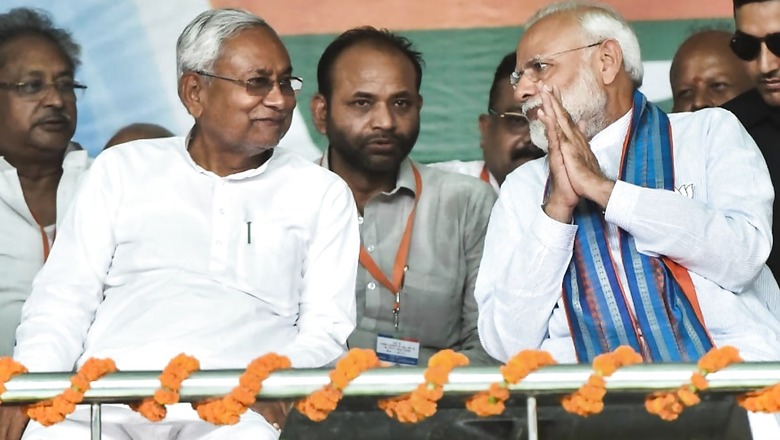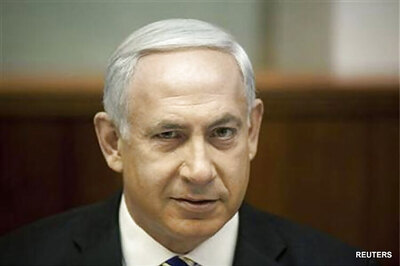
views
It seems the prevailing sentiment in the Bihar assembly elections this time is fear.
Efforts are on by the National Democratic Alliance (NDA) to rake up the issue of return of the proverbial Jungle Raj and resurrection of Maoist violence in Bihar if the Rashtriya Janata Dal (RJD) and its communist allies come to power in the state.
Almost all NDA leaders, including Prime Minister Narendra Modi and Chief Minister Nitish Kumar, have been harping on the chaotic situation that prevailed during the 15-year-long Lalu-Rabri regime and the unabated violence between different Maoist outfits and the private armies set up by the landowners to counter them.
The idea behind this is to foment widespread fear and apprehension among the voters’ minds in a bid to distract from the core issues being highlighted by the Opposition. The NDA is layering the peaceful rule of Nitish Kumar with development as its main agenda since November 2005 on the top of this fear factor.
The dread of return of Maoist violence in central and south Bihar, where elections are to be held in 71 constituencies spread over 16 districts on October 28, is a matter of dominant concern among voters because of the past history of the gory violence in the region claiming thousands of lives in the protracted war between the so-called haves and have-nots.
But will this effort to stir up fear as a factor in the elections really matter?
As far as the NDA is concerned, creating fear of the lawlessness that prevailed between 1990 and February 2005 in the minds of the people will definitely unite its supporters who are annoyed with Kumar mainly because of the anti-incumbency factor.
Though no one mentions any reason to vote against the Bharatiya Janata Party (BJP) in the polls, the simmering discontent against Kumar may not have motivated the traditional NDA voters to go for voting. The fear of return of the Jungle Raj and Naxal Raj is the weapon used by Kumar and PM Modi to get their supporters to the polls.
The frenzied mood of the supporters of the RJD and Left parties at election rallies only serves to feed a general distrust among the people against the RJD and its allies. The fear of Maoist violence and the trauma of Jungle Raj still linger in the minds of the common people when the outlaws used to flaunt their guns through tinted window panes of their vehicles and broke the law with impunity.
Kidnappings for ransom and killings were the order of the day during the Lalu-Rabri regime. “If you do not vote for the BJP and JD(U), this nightmare will become your reality,” seems to be the core theme of the NDA leaders at the election rallies.
The RJD chief ministerial candidate Tejashwi Prasad Yadav, however, rejected such allegations and lashed out at PM Modi for selectively pointing out the issues of Bihar and diverting the attention of the people from the core issues of unemployment and others.
The overarching strategy of the NDA seems to be dovetailing the fear factor with the development works done by the ‘double engine’ NDA governments – the Nitish Kumar government in Bihar augmented by the Narendra Modi government at the Centre.
It remains a fact that the NDA government led by Kumar has demystified the myth that crime could not be kept on a tight leash in Bihar. He adopted a zero-tolerance policy vis-à-vis crime and made the district magistrates and superintendents of police directly accountable for any lapse leading to communal tension and caste strife.
As regards tackling violence related to Maoist extremism, Kumar implemented Centre’s Integrated Action Plan to develop necessary infrastructure in 11 districts affected by Left Wing Extremism in Bihar. He had launched ‘Sarkar Aapke Dwar’ programme in Maoist-hit districts with well-conceived development plans and other deliverables.
Areas falling in central and south Bihar on both sides of river Sone have remained a mute witness to bloody feuds between Maoists and landowners for over four decades. The shallow river, which divides Magadh and Rohtas regions of Bihar, is once again set to witness a high-pitch political battle between NDA and Grand Alliance in the first phase of assembly polls slated for October 28.
Nearly 35 assembly constituencies spread over Bhojpur, Nawada, Patna, Gaya, Jehanabad, Aurangabad and Nalanda districts used to have strong Maoist presence and remnants of the various extreme Left outfits are still active in certain pockets.
Several districts were once a crucible of internecine fights between the alleged oppressors and the oppressed leading to blood-curdling mass killings. These districts were the actual laboratories for the CPI-ML (Liberation), Party Unity, MCC to test the waters and flourish when the state controls were weakening and power vacuum was spreading in more areas.
The edge of Maoism was blunted after the advent of RJD chief Lalu Prasad Yadav with his social justice plank to woo the extremely backward castes and Dalit community. But soon, gun-toting criminals took control of politics and incapacitated the state administration. Criminalisation of Bihar politics coincided with this phase and became more pervasive in later years.
It was only after 2005 that the criminal-politician phalanx started dwindling, making way for a new social combination comprising the upper castes, EBCs, Mahadalits and the powerful Kurmis of central Bihar led by Kumar. This changed the political contours of the state.
Though the NDA is trying to recall the dark days of the Lalu-Rabri regime and employing a cynical but time-tested strategy to instill fear, it remains to be seen whether this tactic would work to their benefit. If the discord and violence of the past still weighs heavily in the minds of the people, it just might work.
Read all the Latest News and Breaking News here




















Comments
0 comment